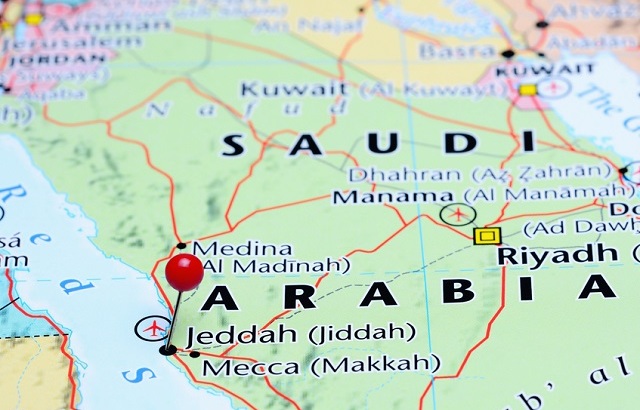Saudi Arabia is not the first country that springs to mind when discussing big financial advice markets in the Middle East.
But it could be looking to become one.
Recently, the Chartered Insurance Institute (CII) announced it will be the exclusive provider of professional examinations to the students of the Financial Academy for the Kingdom of Saudi Arabia (KSA) for the next three years.
The agreement will see the CII’s examinations provided across a range of locations in KSA, including Riyadh, Jeddah, Dammam and Abha.
International Adviser spoke to several members of the advice industry to discuss Saudi Arabia and its potential.
How big is the market?
The Saudi Arabian advice sector is not new.
With its big oil reserves, there are a steady number of jobs for expats, who need access to financial services.
But is more needed?
Tom Goold, founder and director of Valiant Wealth, said: “There are few advisories based in Saudi Arabia but plenty of advisers who ‘trip in’ and sell products.
“Most of our clients in Saudi Arabia have come to us via referral or have found us online and would rather deal remotely with someone they can trust, who understands their needs rather than the unscrupulous salesmen.”
Ryan Frost, private client adviser at Harrison Brook, said: “We receive lots of enquiries from expats, who are looking for low cost transparent platform solutions that they are accustomed to in the UK but aren’t available via the local market or other international advisory firms.
“Cost and technology are increasingly a main focus, however options are still sadly limited or opaque.”
Investment firms
One of the big issues for financial advisers in the Middle East is investments, as there are not many firms to work with in the region.
So, is this the same for advisers in Saudi Arabia?
“There are more than a dozen investment firms based in Saudi Arabia, they offer various types of financial products, however at Harrison Brook we have seen that many expats in Saudi Arabia who got in touch with us actually prefer to invest with investment firms based in the UK or Europe,” said Frost.
“It will be interesting to see how this changes in the next few years with the changes operated and planned in the country come into play.”
Goold added: “There are not many but this is not necessarily a challenge as expats in Saudi Arabia can still access investment firms outside of the country and are usually better off for doing so.”
Biggest issue
When it comes to the biggest issue facing the advice sector in KSA, Frost pointed to:“the split between commission and fee-based advice/products and how this differs from local market solutions and what expats may have had available in their country of origin”.
Goold added: “Like many middle eastern countries there is a lack of quality financial advice. It is still dominated by advisers selling unsuitable products such as insurance bonds and structured notes for commissions.
“The country has big ambitions but it will take time for standards to improve. We offer a better model of financial advice to expats in Saudi Arabia by providing 100% fee-based advice with full transparency and UK regulation.”
Gaenor Jones, regional director of Middle East at the CII, also said that “the next step will be to ensure that it invests sufficiently in the training and development of Saudi human resources in order for them to become qualified and attain even more senior and technical positions”.
Professional development
The CII’s partnership with Financial Academy for KSA will be a big step for the industry, and has put it on the road to becoming a big player.
“There are a wealth of benefits to this partnership, all of which will ultimately serve to drive up professional standards in the insurance sector and instil public confidence,” Jones added.
“From a practical perspective, advisers will have access to public exam centres located across the country, with learning materials nuanced accordingly and available in the Arabic language, and remote learning and invigilation playing an important role in the learning and attainment process.”
Harrison Brook’s Frost added: “It shows the importance the sector is showing to a more universal and comprehensive way to teach finance. This will definitely change the current dynamics of the market as it will bring more competitiveness to the table for sure.”
Goold said: “Any initiative like this is obviously a step in the right direction to bring better standards of financial advice across the world.
“The ultimate goal should always be a focus on client outcomes. Clients need to know what to look for when dealing with an adviser and this goes beyond their training.”
Growth of Saudi
Saudi Arabia has suffered from financial difficulties because of the pandemic, as the lack of demand for oil saw national wealth decline.
But despite this, Saudi Arabia is on the up and is putting in place iniatives to improve.
So, what is the potential of the advice sector?
Frost said: “Considering the actual state of things, the Saudi Arabian market is going to continue consolidating its current economy whilst working towards a holistic approach that is not solely relying on one market to drive growth with Vision 2030.
“This might dilute the value of some of the oil shares price even further than it has seen in the previous months.
“In terms of expat financial advice and personal finances, I expect that more and more fee based financial products will be used as they encourage financial advisers to give their ongoing attention to their clients’ finances and thus increasing the intrinsic value of their service.”
Goold added: “Saudi Arabia is a country making big strides in many areas. As the expat market grows there will be an increase in advisers looking there for business.
“We can only hope that these are the right kind of advisers who do business ethically. We hope that effective regulation ensures that the right standards of integrity and transparency are adhered to.”








